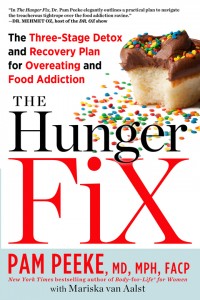Lose Weight > Common Sense To Lose Weight > Common Sense Article > The Case Of The Fat Nutritionist....
The Case Of The Fat Nutritionist....
After going over her nutrition, and her exercise plan, I concluded it was terrible. Her diet was 80% carbs, 10% fat, and 10% protein. For exercise, she did mostly low intensity aerobics (you know, in the "fat burning zone"...) and low weight high rep weight training. She used no supplements of any kind.
OK, so she's paying me to help her, I look over her diet and exercise plan, and make recommendations. I explain to her the benefits of essential fatty acids - in particular Omega-3, for weight loss and health - attempt to get her to increase her protein intakes and lower her carb intakes ( most of which were of a high GI low fiber type to boot) and recommended she add a multi vitamin and a few other things.
On the exercise front, I explained to her why the "fat burning zone" was a myth in terms of its effectiveness on fat loss, and explained why high intensity exercise, especially resistance exercise was the way to go, etc.
Problem is, this obese nutritionist was having none of it. She was taught in school high carb diets were the way to go, low intensity aerobics was best for losing weight, and a bunch of other debunked hyperbole I wont bore you with as I am sure most readers know what was said.
I never heard from her again after the three sessions she paid for.
It's interesting to me that most people in my experience are unable to comprehend the fact that much of what they are taught in school, especially in the area of nutrition, health, and fitness, is either out of date by 20 years or so, or just plain wrong, and or not supported by the available data.
It's interesting that some people will come out of such programs realizing their learning is just beginning, and some will take what they learned in school as gospel, and will not question it or research any further. It's as if, if they find out much of what they were told is wrong, their faith will be lost and their bubble burst. I don't know why, but I find this mentality the most common in nutritionists. I don't know if it's a certain mentality that is attracted to that topic, or something else, but I don't find scientists in other areas so inflexible and so locked into what they were taught in school. That's not to say most scientists are known for their flexibility, 'cause it's not a common personality trait in the scientific community as a rule.
At one point in my college experience, a loooooooooooong time ago, I was going to be an RD, until I got into an argument with the head of the department and quit the program.
A course I was taking at the time called for us to break down our own diets and critique it. I got a poor grade on the project because my protein intakes were too high (e.g., well above the RDA) and the teacher said "I should know better." I took my issue to the head of the department, a PhD who ran the nutrition department. He agreed with the poor grade and informed me my protein intakes (which as I recall were approx 1g per lb more or less) were "dangerously high" and would harm my kidneys. I asked him simply for the data to support that statement, at which point he threw me out of his office.
What, a peon undergrad actually ask for some objective data to support an unsupported statement made by an all important PhD, and head of the department?! Never! Thus, it was clear to me I was not cut out to be an RD (at least not via that school and that dept...) and that was my first real experience with how dogmatic, closed minded, and inflexible people involved in the nutritional sciences could be.
I decided a good general science based program was best for me, and I could take courses and or research the topic of nutrition on my own time, which I did.
Now I didn't write this to offend all the RDs out there, and I do know a few good ones, but I do find as a group, they tend to follow what they read in their textbooks in school more so then other health professionals, and that's a shame. I will also say things have been steadily improving as it relates to nutrition programs out there since I was in school, but I still find myself locking horns with people in this profession, and there's still an anti supplement bias that runs deep...
Remember, never stop questioning what you are told or read!
Related Articles
-
Exercise And Weight Loss For Women Part 3
Importance of Strength Training Nowadays, the importance of strength
-
Crohn’s disease causes, symptoms, treatments and role of gut bacteria
Crohn’s disease is an inflammatory bowel disease (IBD,) which
-
Weight Loss Perception And Reality
Losing weight without a motivational switch for an emotional eater is
-
Quickest Methods To Drop Lb’s
You say it can’t be done, but we say otherwise. We can show you
-
A Salad is The Perfect Diet Food, Right?
It depends. Are you having a salad or
-
Weight reduction Tablets : Expert Tips
1 eco-friendly error greatest people model is actually entails intake.
- DON'T MISS
- How To Lose Weight With The Law Of Attraction
- Is Your Sweetie Making You Fat?
- Weight Loss Efforts May Get Help From Blueberries
- Rapid Weight Loss - Losing Weight The Healthy Way
- Bodybuilding Training For Hardgainers - Unique Approach To Training For Massive Muscle Gains!
- Lose Weight at Home with These 3 Simple Steps
- Tricks To Lose Weight Now
- Never Too Late Weight Loss
- Weight Loss Are You Determined Enough To Succeed
- The Secret: How I lost 50 lbs after my FIFTH child & worked out in less time!




